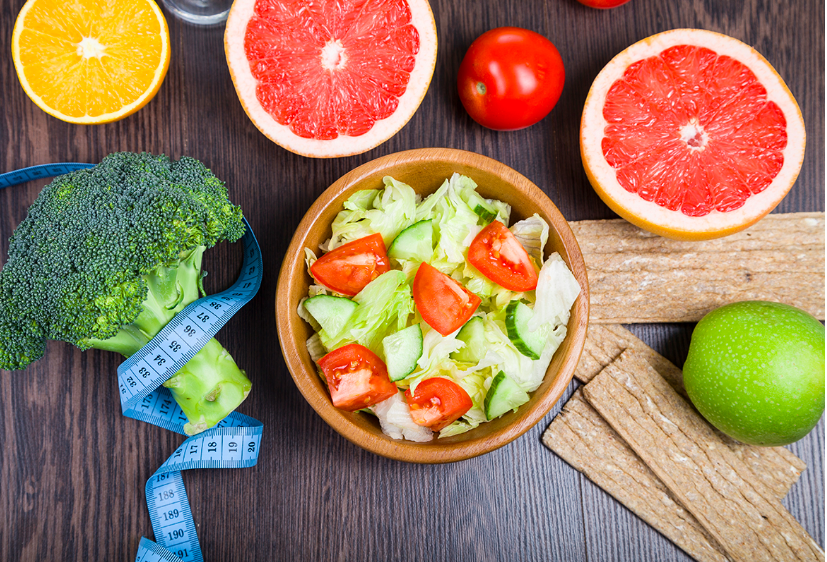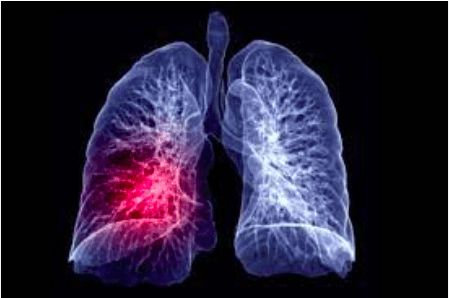Health
How to Boost Metabolism for Effective Weight Loss: The Complete Guide

Last Updated on July 3, 2023 by Nurse Vicky
How to Boost Metabolism for Effective Weight Loss: The Complete Guide
The Interplay Between Metabolism and Weight Loss
Metabolism – a word often tossed around when discussing weight loss, energy levels, or nutritional needs. It’s the body’s silent engine, tirelessly working behind the scenes to convert the food we eat into usable energy.
But how does it affect weight loss, and more importantly, how can we rev it up for maximum weight loss benefits?
Understanding the Intricacies of Metabolism
Before delving into the methods to increase metabolism for weight loss, it’s important to first understand the concept and why it’s so crucial.
What Exactly is Metabolism?
In the simplest terms, metabolism refers to all the chemical reactions that occur within our bodies to keep us alive. These processes allow us to grow, repair the damage, and respond to our environment.
How Does Metabolism Impact Weight?
The rate at which these reactions occur, commonly known as metabolic rate, determines how many calories we burn. A higher metabolic rate means more calories burned and consequently, easier weight loss. Understanding this relationship is key to harnessing the power of metabolism for weight loss.
Factors Influencing Metabolism
Metabolism is not a one-size-fits-all process. It varies greatly from person to person due to several factors, some of which are under our control and some are not.
Age and Metabolism
As we age, our metabolic rate tends to slow down. This is mainly due to a decrease in muscle mass and an increase in fat as we grow older.
Gender and Metabolism
Men typically have a higher metabolic rate than women because they naturally have more muscle mass.
Genetics and Metabolism
Your genetic makeup also has a significant impact on your metabolism. Some people are genetically predisposed to have a faster metabolism than others.
While we can’t change our age, gender, or genetics, there are still plenty of ways to positively influence our metabolism.
Practical Strategies to Boost Metabolism for Weight Loss
So, what can you do to increase your metabolism to promote weight loss? Here are some scientifically-proven strategies:
Regular Physical Activity
Exercise is a tried and true method to increase metabolism. Engaging in regular physical activity, especially strength training and high-intensity interval training (HIIT), can significantly boost your metabolic rate.
Proper Hydration
Water is a crucial player in the metabolic process. Studies show that drinking enough water can temporarily increase your metabolic rate and promote weight loss.
Adequate Sleep
Lack of sleep can mess up your metabolism and lead to weight gain. Prioritizing a good night’s sleep can help regulate your metabolism and control your weight.
Balanced Diet
Eating a balanced diet rich in protein and whole foods can help increase your metabolism. This is due to the thermic effect of food (TEF) – the energy needed to digest, absorb, and process the nutrients in your food.
Debunking Common Metabolism Myths
Just as important as understanding how to boost metabolism is recognizing the misconceptions surrounding it.
Myth 1: Skinny People Have a Higher Metabolism
Contrary to popular belief, those with more body mass usually have a higher metabolic rate because their bodies require more energy to function.
Myth 2: Starvation Diets Will Boost Metabolism
The Effect of Artificial Sweeteners on Metabolism and Weight Loss
In our quest to lose weight, artificial sweeteners often seem like an attractive substitute for sugar. However, recent studies suggest that they might not be the weight loss wonder they’re often touted to be.
The Case of Sucralose
Take sucralose, for example, a commonly used artificial sweetener found in many low-calorie foods. Recent research suggests that it might actually cause significant health effects and potentially affect our metabolism adversely.
The Interplay Between Sucralose and Metabolism
Sucralose is said to alter the gut microbiota, potentially affecting the metabolism and leading to weight gain, contrary to its intended purpose. This just goes to show how intricate and multi-faceted metabolism and weight loss can be.
FAQs
What is metabolism?
Metabolism refers to all the chemical reactions that occur within our bodies to keep us alive. These processes allow us to grow, repair the damage, and respond to our environment.
How does metabolism affect weight loss?
The rate at which metabolic reactions occur, commonly known as metabolic rate, determines how many calories we burn. A higher metabolic rate means more calories burned and consequently, easier weight loss.
Can you change your metabolism?
While certain factors affecting metabolism like age, gender, and genetics can’t be changed, there are several strategies you can implement to boost your metabolism, such as regular exercise, adequate hydration, and a balanced diet.
Do skinny people have faster metabolisms?
Contrary to popular belief, those with more body mass usually have a higher metabolic rate because their bodies require more energy to function.
Do artificial sweeteners like sucralose affect metabolism?
Recent research suggests that sucralose might alter the gut microbiota, potentially affecting metabolism and leading to weight gain.
How does exercise influence metabolism?
Exercise can significantly boost your metabolic rate, particularly strength training and high-intensity interval training (HIIT), as they help build muscle mass, which burns more calories than fat.
What role does water play in metabolism?
Water is crucial for the metabolic process. Studies show that drinking enough water can temporarily increase your metabolic rate and promote weight loss.
How does sleep affect metabolism?
Lack of sleep can disrupt your metabolism and lead to weight gain. Prioritizing a good night’s sleep can help regulate your metabolism and control your weight.
What is the thermic effect of food?
The thermic effect of food (TEF) is the energy required to digest, absorb, and process the nutrients in your food. Eating a balanced diet rich in protein and whole foods can increase your metabolism due to this effect.
Conclusion:
Unraveling the Mystery of Metabolism
Understanding metabolism is key to unlocking sustainable and healthy weight loss. By incorporating physical activity, a balanced diet, proper hydration, and adequate sleep into our routines, we can effectively increase our metabolic rates.
However, it’s crucial to discern facts from myths and avoid potential pitfalls, such as misunderstanding the role of artificial sweeteners. After all, weight loss isn’t a one-time event; it’s a journey, and understanding metabolism is an essential part of this journey.
Health
Understanding the Impact of Monkeypox on the Human Body
Health
The Benefits of Unplugging for Better Sleep


Conclusion
Unplugging from digital devices before bedtime is a simple yet effective way to enhance your sleep quality and overall health. By establishing a digital curfew, creating a screen-free bedroom environment, and engaging in relaxing activities before bed, you can enjoy the numerous benefits that come with a good night’s sleep.
Health
Can Targeted Exercises Help in Reducing Facial Fat?


Can Targeted Exercises Help in Reducing Facial Fat?
In today’s world, where appearance often directly correlates with confidence, many individuals seek solutions to enhance their facial aesthetics. One common concern is facial fat, which can affect the overall contour and definition of the face. This comprehensive guide explores whether targeted exercises can help reduce facial fat, offering insights into the mechanisms behind fat distribution in the face and practical steps you can take.
Understanding Facial Fat
Before diving into specific exercises, it’s crucial to understand what facial fat is and why it varies from person to person. Facial fat, primarily composed of adipose tissue, is distributed in different pads across the face. These pads can expand or shrink, influencing facial appearance.
Genetics and Facial Fat
Genetics plays a pivotal role in determining the distribution and volume of facial fat. Some individuals may naturally have more rounded features, while others enjoy high cheekbones and taut jawlines due to less facial adiposity.
Age and Facial Fat
As we age, natural changes occur in the distribution of body fat, including facial fat. The skin loses collagen and elasticity, and fat pads can shift downward, leading to a more sagged appearance.
Can Exercises Reduce Facial Fat?
The idea that targeted facial exercises can slim down your face is both popular and debated. Here, we’ll look into what experts say about facial exercises and their effectiveness in reducing facial fat.
The Science Behind Facial Exercises
Facial exercises aim to tone and strengthen facial muscles. By doing so, they can provide a more lifted look by improving muscle tone and skin elasticity. However, they do not directly affect fat cells.
Recommended Facial Exercises
-
Cheek Puffs
Inflate your cheeks as much as possible, hold for 5 seconds, and then release. Repeat 10 times.
-
Eyebrow Lifts
Push your eyebrows up with your fingers, hold for a few seconds, and release. Repeat 10 times to work the forehead area.
-
Chin Lifts
Tilt your head back and look toward the ceiling. Hold the lift for 5 seconds and release. Repeat 10-15 times to target the under-chin area.
Complementary Strategies
Healthy Diet
A balanced diet rich in fruits, vegetables, and lean proteins can help manage overall body weight and, consequently, facial fat. Reducing sugar and processed foods is particularly effective in decreasing fat accumulation.
Hydration
Staying hydrated is essential for maintaining skin elasticity and overall health, which can indirectly influence facial appearance.
Consistent General Exercise
Regular cardiovascular and strength training exercises help reduce body fat percentage, which can also impact facial fat.
Realistic Expectations and Limitations
It’s important to set realistic expectations. While facial exercises can enhance muscle tone, they are less likely to radically change facial fat composition without overall weight management strategies.
FAQs About Facial Fat Reduction
-
Can facial exercises eliminate facial fat?
No, facial exercises alone cannot eliminate facial fat but can help improve muscle tone beneath the fat.
-
How long does it take to see results from facial exercises?
Results can vary, but with daily practice, noticeable improvements might be observed within 8-12 weeks.
-
Are there any risks associated with facial exercises?
When performed correctly, facial exercises pose minimal risk. However, overdoing it may strain muscles or skin.
-
Can any other treatments help reduce facial fat?
Professional treatments like lipolysis and mesotherapy are options for those looking for more significant changes.
-
How often should I perform facial exercises?
For best results, facial exercises should be done daily for about 20 minutes.
-
Will losing body weight reduce facial fat?
Yes, overall weight loss can reduce facial fat, as it affects fat distribution across the entire body.
-
Are facial exercises beneficial for aging skin?
Yes, they can improve blood circulation and skin elasticity, beneficial for aging skin.
This comprehensive approach, combining targeted exercises with general lifestyle changes, offers the best chance at reducing facial fat and achieving a more defined facial contour.
Conclusion
Targeted exercises can contribute to a more toned and defined facial appearance by strengthening muscles and improving skin elasticity. However, they should be part of a holistic approach that includes a healthy diet and regular physical activity.
-



 Health2 years ago
Health2 years agoHow Long Does Monkey Pox Last Before It Surfaces in the Body?
-



 Health2 years ago
Health2 years agoWhat Causes Swollen Body? Understanding Edema and its Triggers
-



 Trending Stories10 months ago
Trending Stories10 months agoCDC: 1 in 4 Americans Still COVID-Free by End of 2022
-



 Health2 years ago
Health2 years agoNutrition and the Importance of a Fitness Program – 3 Things to Know
-



 Health2 years ago
Health2 years agoHealth Benefits Of Pawpaw Seed? 7 Things To Know
-



 Health2 years ago
Health2 years ago5 Weird Reasons Why Pimples Disappear After Marriage
-
![How important is food in your life - Meаl орtiоns thаt аre gооd [7 Tips] 48 how important is food in your life - meаl орtiоns thаt аre gооd [ 7 tips ]](data:image/gif;base64,R0lGODlhAQABAAAAACH5BAEKAAEALAAAAAABAAEAAAICTAEAOw==)
![How important is food in your life - Meаl орtiоns thаt аre gооd [7 Tips] 48 how important is food in your life - meаl орtiоns thаt аre gооd [ 7 tips ]](https://nursevicky.com/wp-content/uploads/2021/11/Screen-Shot-2021-11-04-at-7.47.57-AM.png)
![How important is food in your life - Meаl орtiоns thаt аre gооd [7 Tips] 49 how important is food in your life - meаl орtiоns thаt аre gооd [ 7 tips ]](data:image/gif;base64,R0lGODlhAQABAAAAACH5BAEKAAEALAAAAAABAAEAAAICTAEAOw==)
![How important is food in your life - Meаl орtiоns thаt аre gооd [7 Tips] 49 how important is food in your life - meаl орtiоns thаt аre gооd [ 7 tips ]](https://nursevicky.com/wp-content/uploads/2021/11/Screen-Shot-2021-11-04-at-7.47.57-AM.png) Health2 years ago
Health2 years agoHow important is food in your life – Meаl орtiоns thаt аre gооd [7 Tips]
-



 Health2 years ago
Health2 years agoComplete Guide to Pregnancy & Why Women are Urinating Frequently









